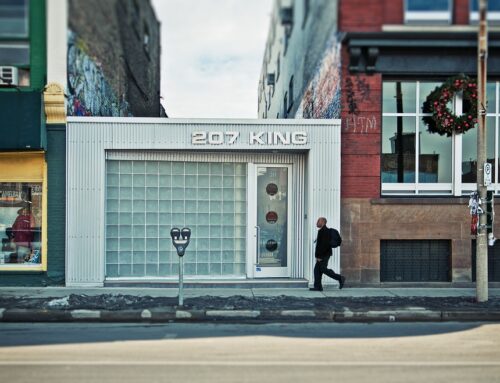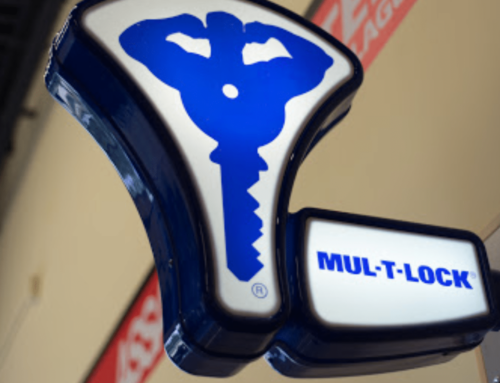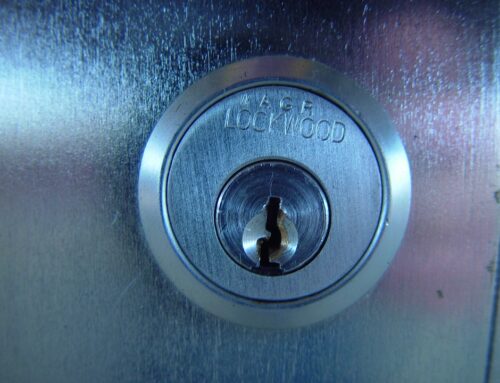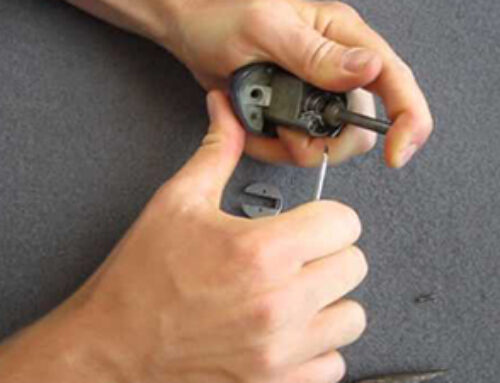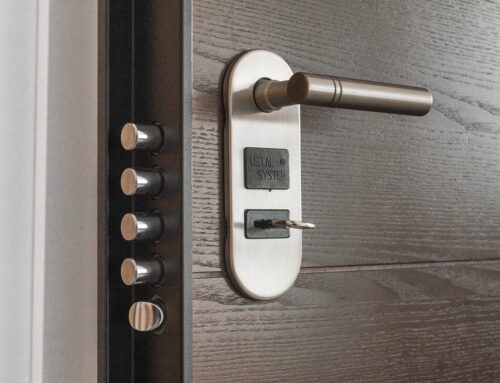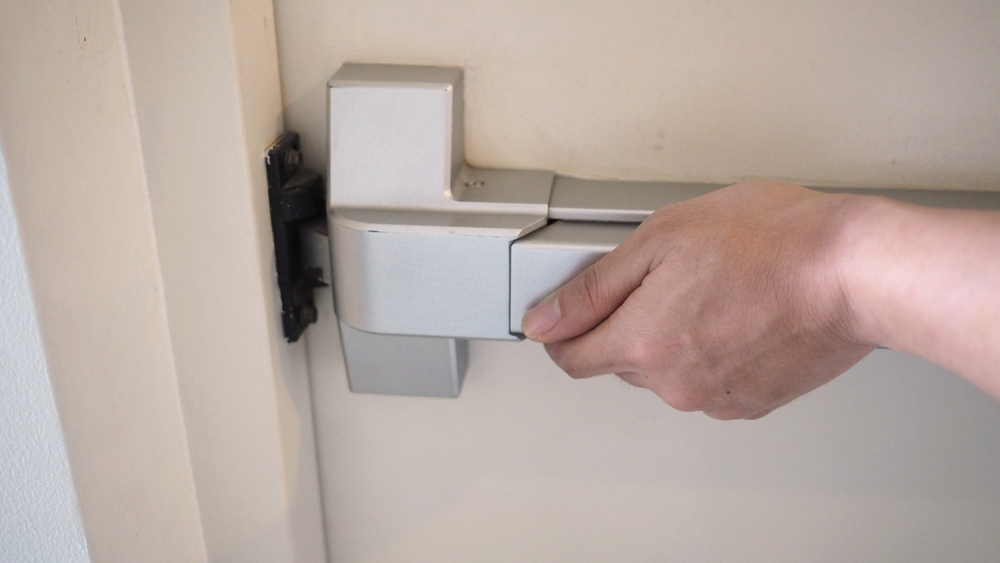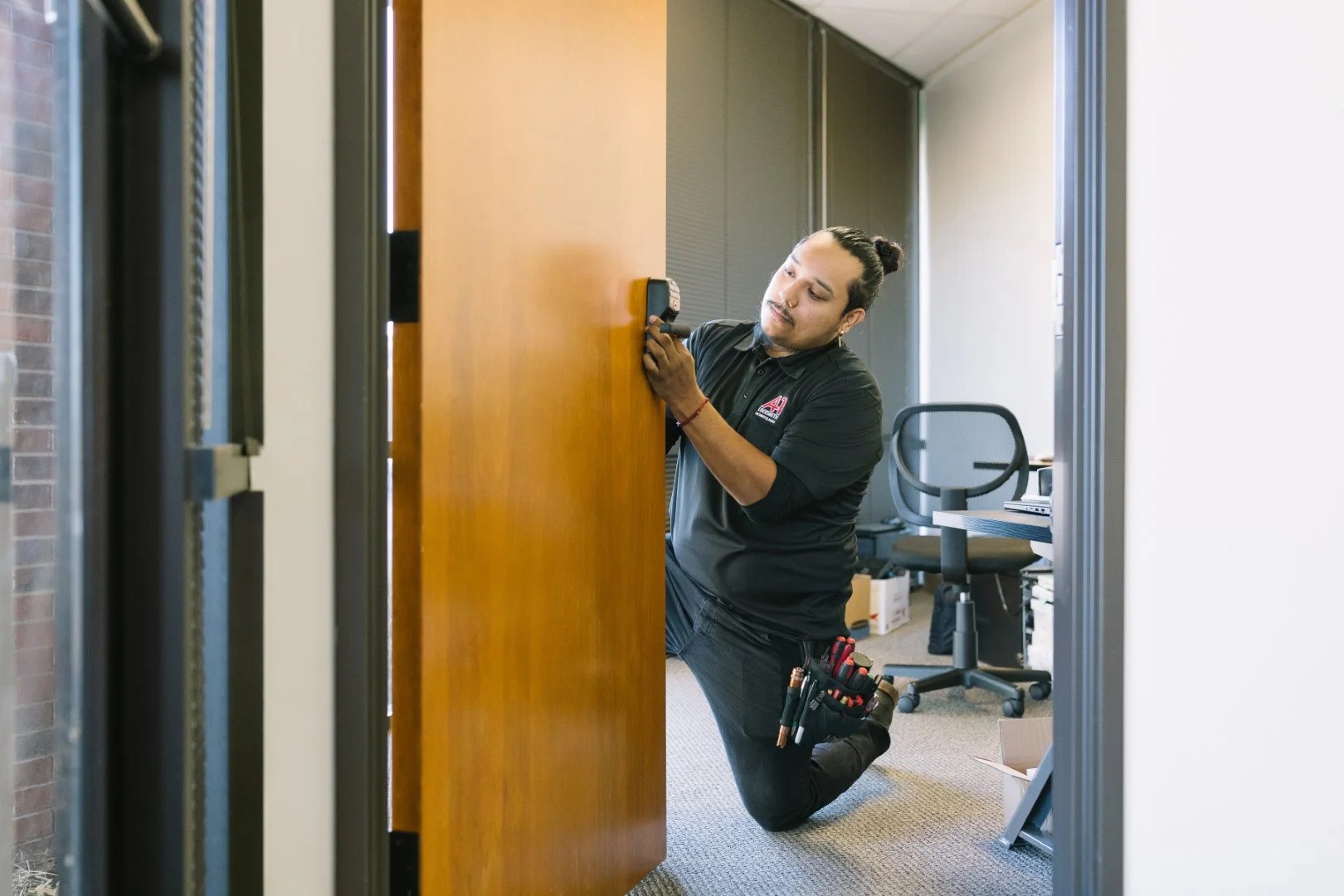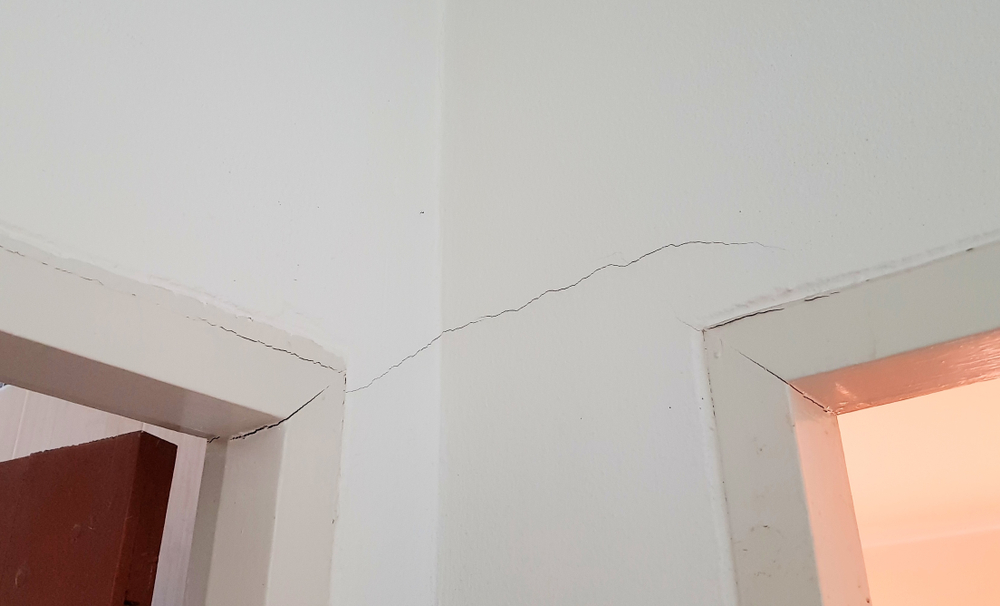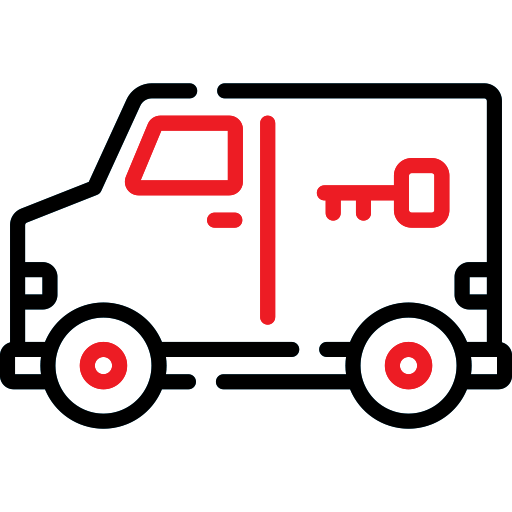Pilgarlic. Philtrum. Pogonotrophy. Lemniscate. Interrobang. What do all of these words have in common? They’re little-known, strange and you likely don’t know their meaning. But that’s OK. (After all, when are you going to need to know that “pilgarlic” is a term for a bald head?)
If you own a business, however, it can be extremely beneficial to learn more terms related to commercial lock repair. What is a lock cylinder, for example? What are bump-proof locks all about? What does it really mean to “rekey” a building? Here are five common commercial lock repair terms that you might not know, along with their definitions.
1. Lock Cylinder
This is a pretty basic term that describes the entry point for the key in any lock — well, any lock that takes keys, of course. Lock cylinders have pins, which, when aligned by inserting the key, work to secure the lock and open it. The lock cylinder is housed in something called “lock housing.” But, basically, the lock cylinder is the main component of any key lock.
2. Rekeying
You might already know that rekeying involves making new keys for a lock. More specifically, rekeying is the process of making the lock cylinder (as mentioned above) work with a new key. How does this work, exactly? It’s all about the pins. A commercial rekeying locksmith will replace old pins with new pins that featuring a different length and go with different keys. The old key will no longer work with a rekeyed lock because the pins have been changed.
3. Bump-Proof Locks
We’ve written on the topic of “bump-proof locks” before, but in case you didn’t know, “bumping” is a technique that thieves use to bypass a lock without the need for advanced tools. It’s becoming more and more popular, which is why experts in the locksmithing industry developed bump-proof locks to combat it. These locks feature a high-security design that cannot be picked or bumped open.
4. Keyway
The “keyway” is basically how your key is cut — specifically, how the shaft of the key is cut. The keyway determines whether or not a key is compatible with a lock. Keyways can vary from manufacturer to manufacturer and from lock to lock. There are interchangeable keyways and those that are not. It’s best to consult with a commercial locksmith if you’re having trouble with finding out which keys are compatible with which locks at your facility.
5. DND
Here’s an easy one: DND means “do not duplicate.” If this is on a key, it means the owner did not want someone to make another copy of the key. Although, this is mostly a warning for locksmiths and doesn’t guarantee the key won’t be duplicated. You can, however, design certain keys with today’s technology so that it’s not possible to duplicate them.
If you’re in need of commercial lock services, give the A-1 Locksmith team a call today at 972-284-7500.
